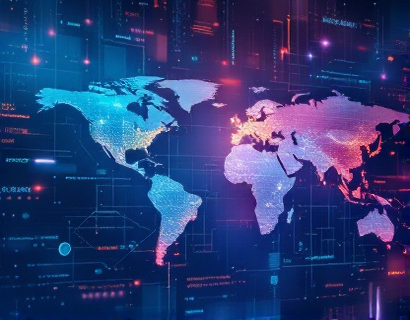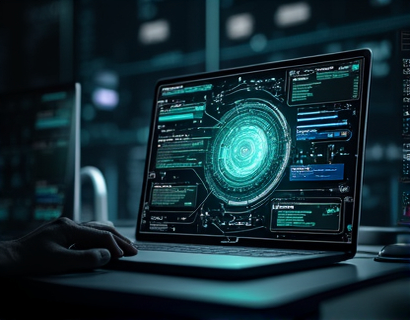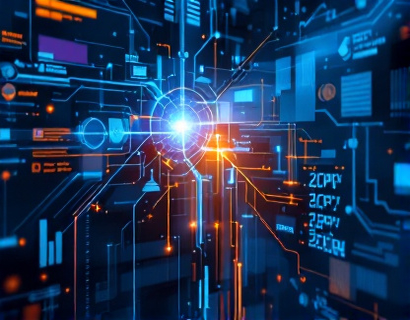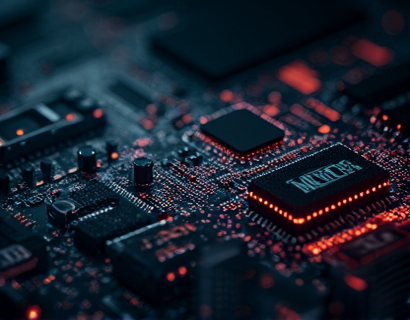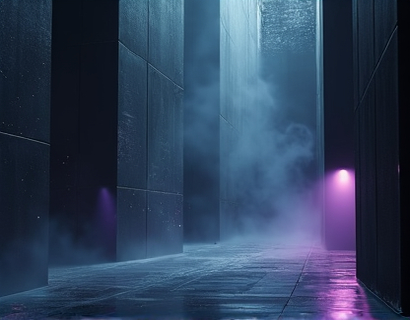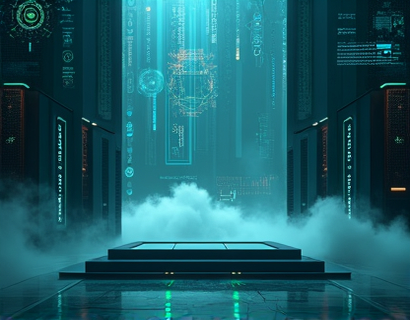Revolutionizing Online Memorials: The Synergy of AI and Blockchain
The intersection of artificial intelligence and blockchain technology is giving rise to innovative solutions in various sectors, including the creation and management of online memorials. This emerging field combines the emotional depth required in memorializing loved ones with the technical prowess of modern technology, offering bereaved families and individuals a new way to honor their memories. This article delves into how AI and blockchain are elevating online memorials, providing secure and personalized tributes that ensure lasting legacies and meaningful remembrance.
The Need for Advanced Memorial Solutions
The process of creating an online memorial is often fraught with emotional challenges and practical difficulties. Traditional methods of memorial creation can be time-consuming, lack personalization, and may not provide the necessary security for sensitive information. Bereaved families seek solutions that not only capture the essence of their loved ones but also safeguard their digital legacies. The integration of AI and blockchain addresses these needs by offering a platform that is both secure and highly customizable.
AI in Memorial Creation
Artificial intelligence plays a pivotal role in crafting personalized tributes. AI algorithms can analyze vast amounts of data, including photos, videos, and written memories, to create a comprehensive and nuanced portrayal of the deceased. This technology can identify key themes, emotions, and events in a person's life, allowing for a more holistic and accurate representation. AI can also assist in generating personalized messages, poems, or even music that resonate with the individual's personality and life story.
Moreover, AI can facilitate the creation of interactive memorials. Through natural language processing and machine learning, these platforms can engage visitors by responding to queries, providing anecdotes, or even suggesting related memories. This interactivity not only enhances the user experience but also helps keep the memory of the deceased alive and relevant over time.
Blockchain for Security and Ownership
Blockchain technology ensures the security and integrity of digital memorials. By using a decentralized ledger, blockchain provides a tamper-proof environment where memorial data is stored. Each transaction, or update to the memorial, is recorded in a block that is linked to the previous block, creating an unbreakable chain. This makes it virtually impossible for unauthorized parties to alter or delete information, providing bereaved families with peace of mind.
Blockchain also addresses the issue of ownership and control. Users have full sovereignty over their memorials, determining who can access and contribute to the tribute. Smart contracts can be employed to manage permissions and access levels, ensuring that only authorized individuals can make changes. This level of control is crucial for maintaining the privacy and dignity of the deceased and their loved ones.
Combining AI and Blockchain for Enhanced Memorials
The true power of AI and blockchain is realized when they are combined. A platform that leverages both technologies can offer a seamless and secure experience for creating and managing online memorials. Here’s how such a platform operates:
First, users upload memories and data about the deceased. AI algorithms process this information, extracting key insights and creating a structured tribute. This tribute can include a timeline of significant events, a gallery of photos and videos, and personalized messages. The AI can also generate content such as poetry or reflective pieces that capture the essence of the person's life.
Once the tribute is created, blockchain technology ensures its security and ownership. The memorial is stored on a blockchain, with each update or contribution recorded as a new block. Users can grant specific permissions to family members, friends, or even the public, controlling who can view and interact with the memorial. This decentralized approach eliminates the risk of data breaches and loss, ensuring that the memorial remains intact for generations to come.
Personalization Through AI-Driven Insights
One of the most significant advantages of using AI in memorial creation is the level of personalization it offers. AI can analyze the uploaded content and suggest additional elements that align with the deceased's interests and personality. For instance, if the person was an avid traveler, AI might recommend including a map with pins marking significant travel destinations, along with anecdotes from those trips.
AI can also curate a digital legacy that evolves over time. As new memories are added, the AI can continuously refine and update the tribute, ensuring it remains a living, breathing representation of the person's life. This dynamic approach allows the memorial to grow and adapt, reflecting the ongoing nature of remembrance and reflection.
Community and Support Through Blockchain
Beyond individual memorials, AI and blockchain can foster a community of support for those creating and visiting these tributes. A blockchain-based platform can include features that allow users to connect with others who are going through similar experiences. This community aspect provides emotional support and shared resources, helping individuals navigate the grieving process.
Blockchain can facilitate the creation of a reputation system, where users can rate and review memorials, contributing to a collective evaluation of the platform's content. This peer-to-peer validation ensures high-quality tributes and helps maintain the integrity of the memorials. Additionally, blockchain can enable the creation of charitable funds, allowing visitors to contribute to causes that were important to the deceased, further extending the impact of the memorial.
Preserving Digital Legacies
The longevity of online memorials is a critical consideration. Traditional digital storage solutions often face threats such as data corruption, service outages, and obsolescence. Blockchain, with its decentralized and immutable nature, offers a robust solution for preserving digital legacies. Once a memorial is recorded on the blockchain, it is protected against loss and can be accessed indefinitely, regardless of technological changes.
Furthermore, blockchain can ensure the authenticity of the memorial. Each version of the tribute, from its creation to any updates, is timestamped and verified, providing a clear and unalterable history. This transparency builds trust among users, knowing that their memories are handled with the utmost care and integrity.
User Experience and Accessibility
A platform that combines AI and blockchain must prioritize user experience and accessibility. The interface should be intuitive and user-friendly, allowing individuals of all technical backgrounds to create and manage their memorials with ease. Step-by-step guides and customer support can help users navigate the platform, ensuring a smooth and emotional journey.
Accessibility is also crucial, as memorials should be accessible to everyone, regardless of their device or internet connection. The platform can optimize for various devices, including smartphones and tablets, and offer offline capabilities where possible. Additionally, considerations for users with disabilities, such as screen reader compatibility and alternative text for images, are essential to ensure inclusivity.
Ethical Considerations and Privacy
The use of AI and blockchain in memorial creation raises important ethical and privacy considerations. It is imperative that the platform adheres to strict data protection standards, ensuring that personal information is handled with the highest level of confidentiality. Users should have clear control over their data, including the ability to delete their memorials if desired.
Transparency in how AI algorithms process and use data is also essential. Users should be informed about the data collection processes and have the option to opt-out of certain features. By prioritizing ethical practices, the platform can build trust and ensure that it serves the best interests of the bereaved.
Conclusion
The integration of AI and blockchain in online memorial creation represents a significant advancement in how we honor and remember our loved ones. This technology-driven approach offers a secure, personalized, and meaningful way to create lasting tributes. By leveraging the strengths of both AI and blockchain, a platform can provide bereaved families with a powerful tool to preserve memories and find solace in the digital age. As this field continues to evolve, the potential for innovation and support in memorialization is vast, offering hope and comfort to those who need it most.










